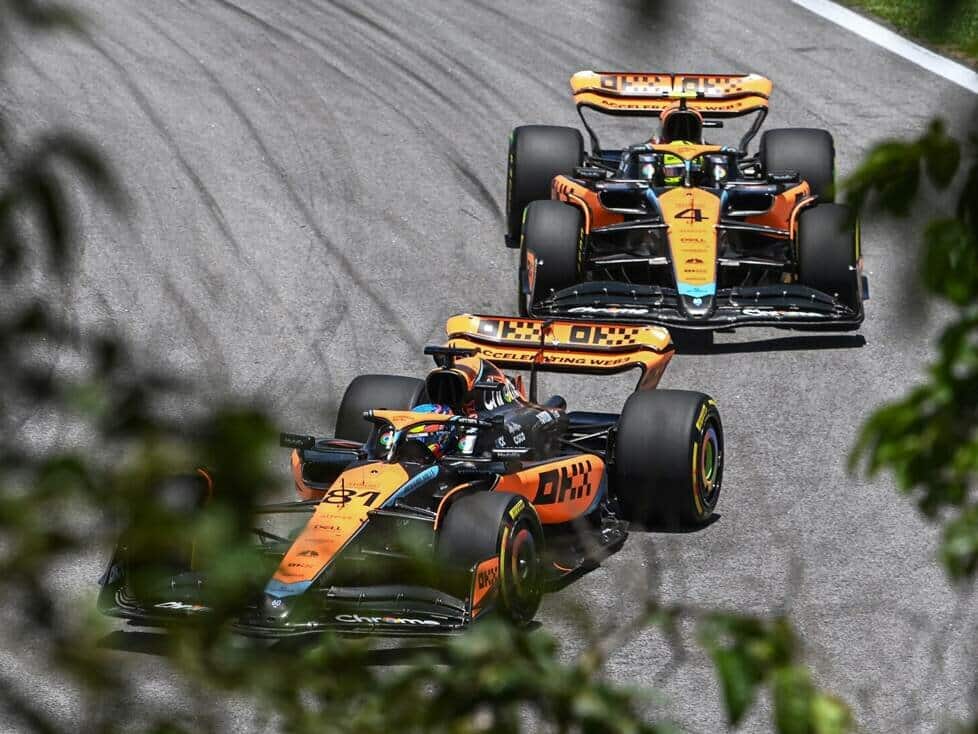McLaren Team Principal Andrea Stella is convinced that Lando Norris and Oscar Piastri benefit from each other – but does this also increase the error rate?
McLaren Formula 1 driver Lando Norris is extremely self-critical. The Briton therefore makes no secret of the fact that, in his opinion, he made too many mistakes in the past 2023 season. He missed the chance of a better result several times, especially in qualifying
This inevitably raises the question of whether this higher error rate is related to his new team-mate? While Norris won the internal McLaren qualifying duel against Daniel Ricciardo 2022 by a clear 20:2, he “only” achieved a 15:7 against Oscar Piastri 2023.
After the summer break, Piastri was even on a par with Norris in qualifying (5:5). When asked whether this increased pressure leads to mistakes, McLaren Team Principal Andrea Stella replies: “We have to make sure that we support our drivers and realize their potential.”
“And that is something that is only possible through constant improvement. And you have to use all the information, including looking at trends during qualifying, for example what happens when we make a mistake, under what circumstances did we do that?”
“Is there something that can be improved technically, but is there also something that can be improved from the human side? So we definitely know that the second element is more pronounced when the teammate is strong,” admits Stella.
Stella: How Norris and Piastri benefit from each other
Or to put it simply: the stronger the team-mate and therefore the pressure from the other side of the garage, the greater the risk of making a mistake. “So that’s something you should definitely think about,” admits the McLaren team boss.
At the same time, however, Stella also emphasizes that he can say “with 100 percent certainty” that Norris and Piastri primarily benefit from each other. “We have two fast drivers,” the team boss clarifies and explains that both could learn something from the other.
Basically, every driver has a few corners to “work on” in practice at the start of the weekend, says Stella. And then they can look at the other rider’s data internally in order to improve in the relevant areas.
“If you have a competitive team-mate, you can see how you can be faster in some places,” says Stella, who emphasizes that his two drivers therefore complement each other well and can therefore benefit from each other.
One side effect of this, however, could be a potentially higher error rate





